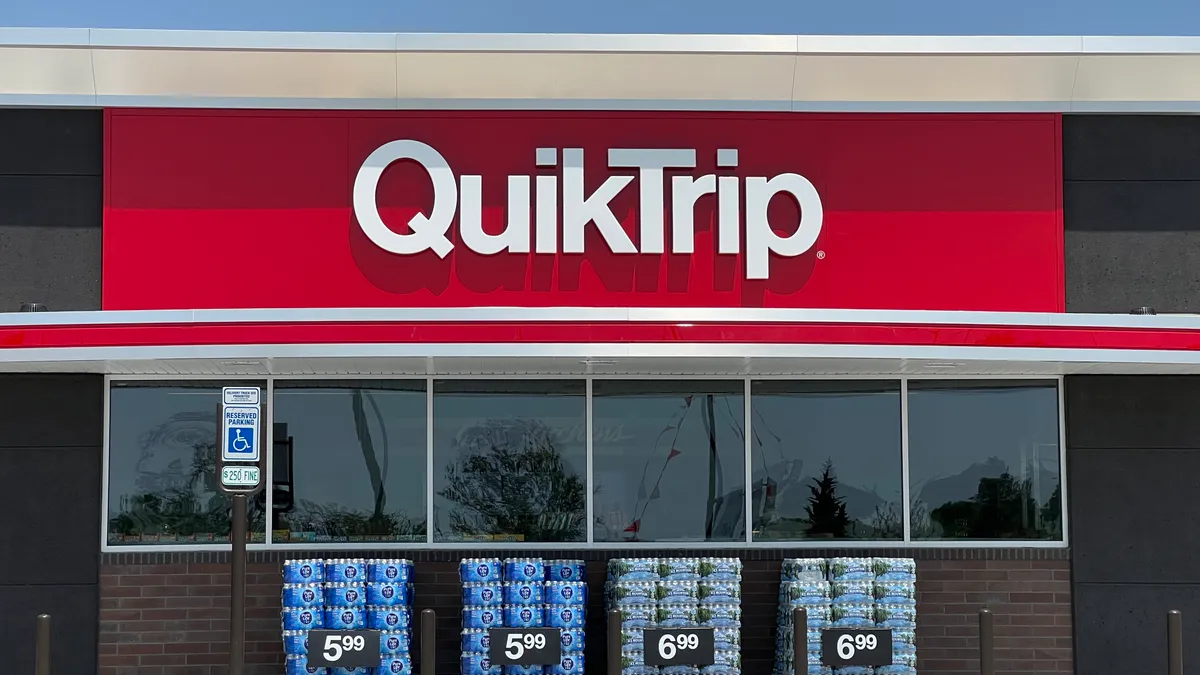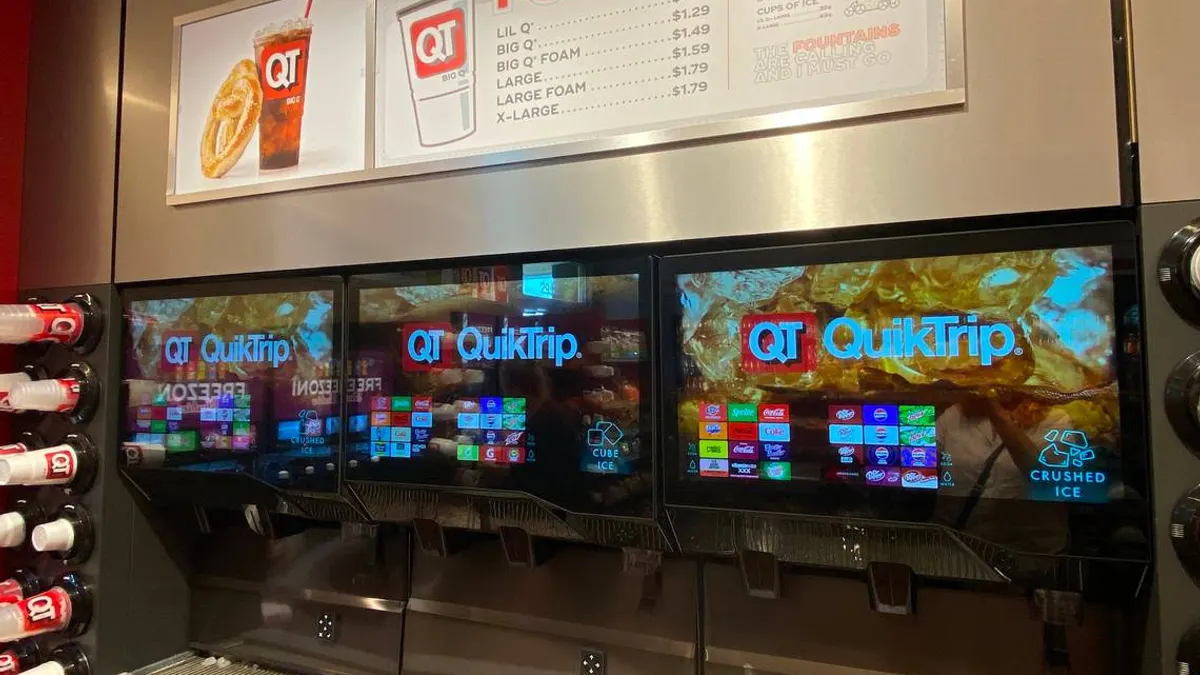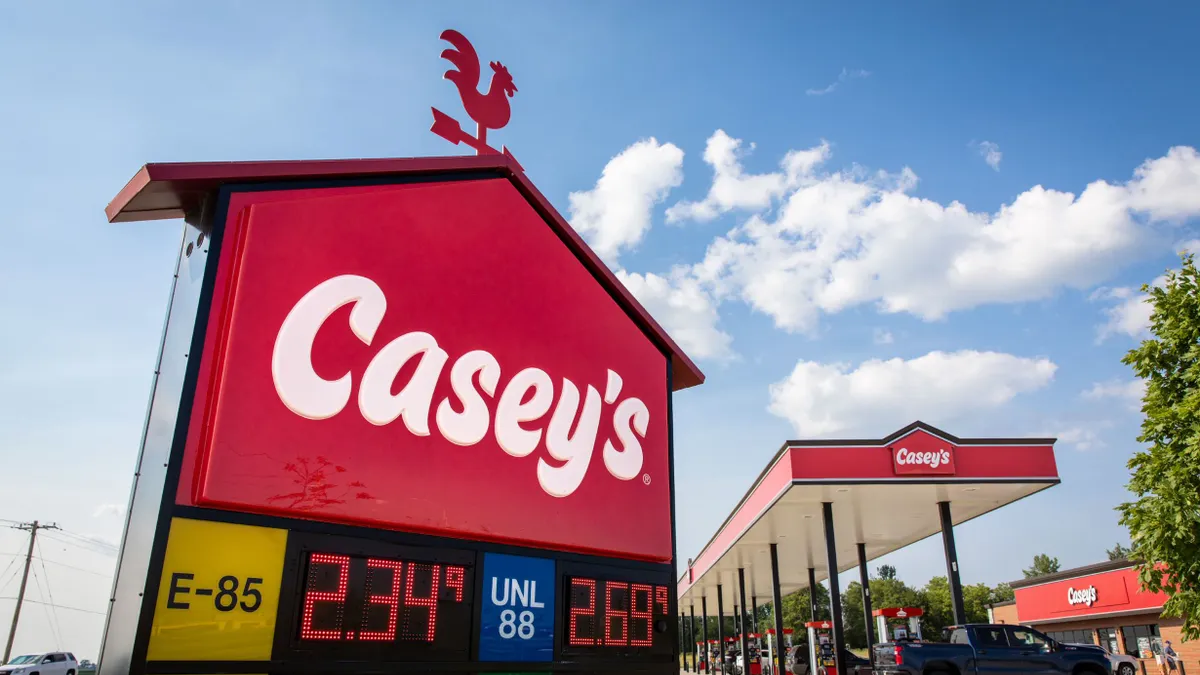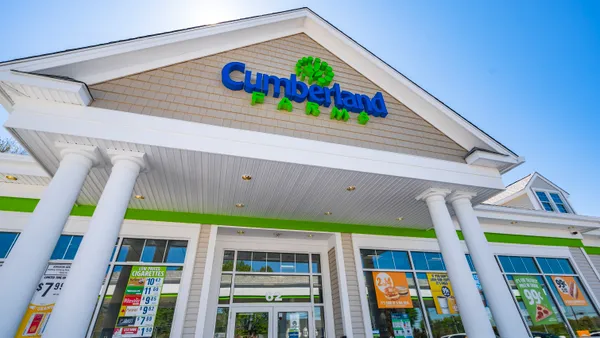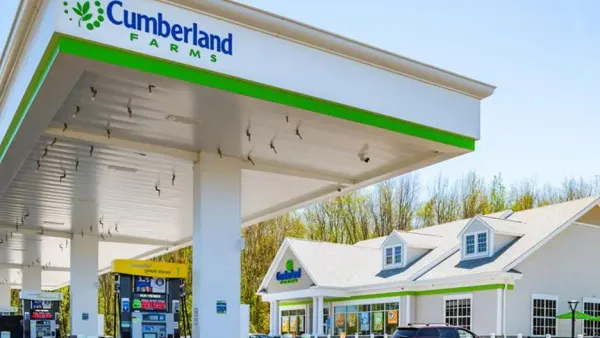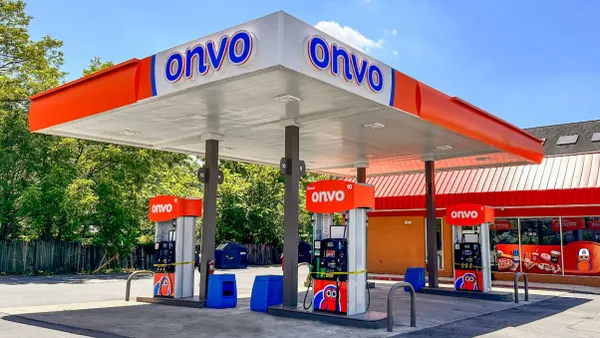Fueling Up is a column from C-Store Dive offering a fresh perspective on the top news and trends in the convenience store industry.
The following convenience store chains have between 11 and 1,000 locations across the U.S. Do you notice any similarities?
- QuikTrip in Tulsa, Oklahoma
- Kwik Trip in La Crosse, Wisconsin
- QuickChek in Whitehouse Station, New Jersey
- Jordan’s Kwik Stop in Harrisburg, Arkansas
- Quick Track in Bedford, Texas
- Kent Kwik in Midland, Texas
- Kwik Stop in North Platte, Nebraska
- Kwik Stop in Dubuque, Iowa
- QuikStop in Westborough, Massachusetts
- Kwik Shop in Westborough, Massachusetts
Or how about these c-store chains, which have between 20 and 220 locations across the country?
- Fast Stop Markets in Hohenwald, Tennessee
- Fast Stop in Bloomington, Illinois
- Fast Stop Travel Centers in Ogden, Utah
- Fast Stop in Baton Rouge, Louisiana
In my time covering the c-store industry, I’ve learned many of the strategies c-store operators use to run their businesses. I could tell you why extra snacks and candy are merchandised at the register, how retailers move into new markets and why EV charging is still a major question mark for this industry.
But one thing I cannot figure out for the life of me is why so many convenience store retailers have nearly the same brand name and continually recycle the same words, like “quick” and “fast,” in their banners.
We see it over and over again, and it’s super confusing to see multiple c-store chains that share a name while having nothing to do with each other. Heck, even the longest-running American sitcom named one of its main locations using one of these recycled words.
To get some clarity on this, I spoke with two marketing experts who specialize in helping brands create their names. Here’s what I learned.
It’s an easy but potentially damaging route
When asked why so many c-store retailers share a similar name or even the same one, Phil Davis got right to the point: because it’s easy.
Davis — president and founder of Tungsten Branding, a brand name development agency — said that c-store operators tend to imitate what’s been done before in many facets of their businesses, like the products they sell or the setup of their stores.
Since most of the c-store industry is made up of smaller companies, these retailers are often hesitant to create a unique moniker for fear of confusing or alienating customers, he noted.
In other words, c-store retailers want their customers to know immediately what they offer — a fast, convenient trip to a gas station.
“They either don't have the confidence or the wherewithal or the knowledge to create a differentiated brand and they panic,” Davis said of some c-store retailers. “And all this generic kind of language is because they're afraid people won't understand that it's a convenience store.”
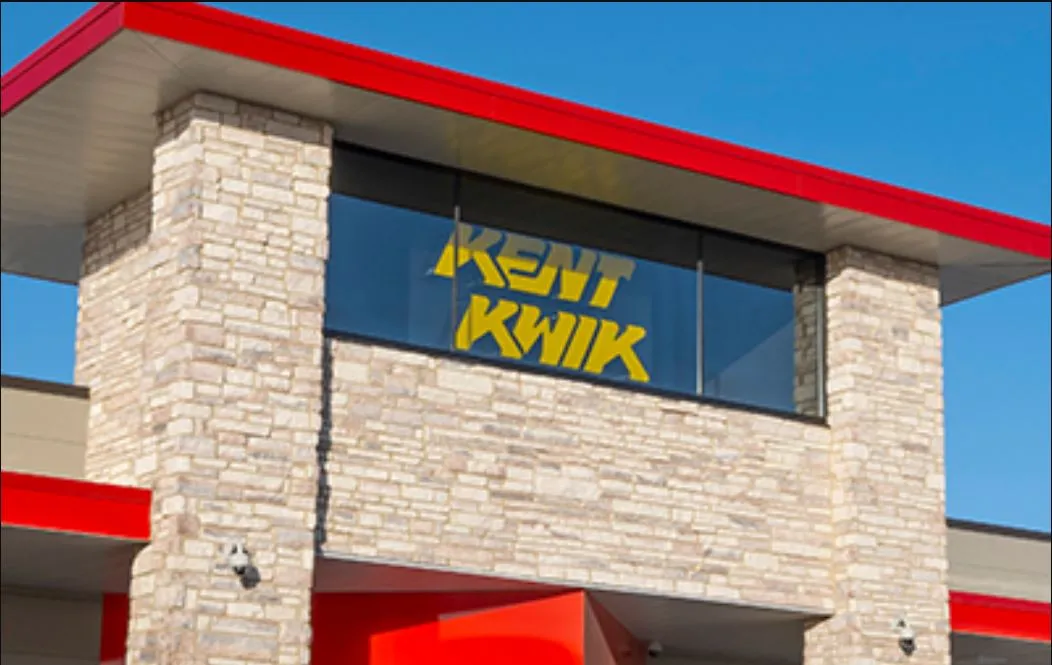
While this strategy of reusing similar brand names is generally uncommon across other industries, there are other industries that do it.
“Back in the late 80s, there was a huge consolidation of banks — you would see a First National Bank in your community, and then you could go to the next county and you'd have the same exact name for a totally different bank,” said Mike Carr, CEO of brand naming consultancy Namestormers.
This is no longer as prevalent in the banking industry as major companies like Wells Fargo and Bank of America have acquired many of the smaller branches in the U.S. But at the time, these recycled names created problems for the banking sector — and those issues apply to today’s c-store industry, Carr noted.
“This lack of consistency across branches or stores with the same name was a huge problem because it tarnishes the brand,” he said. “I think this is a big deal in the c-store space.”
While c-store banner names featuring words like “quick,” “stop” or “fast” are easy to understand and clearly describe the business, c-store retailers can’t truly “own” these names and stand out among their competitors, Carr said.
Being different is key
Carr, who helped Casey’s General Stores develop the name for its 32-location GoodStop subsidiary, said using a similar name to another company is a “terrible” strategy for a c-store retailer trying to stand out.
“The whole point of coming up with a name of almost any style or type is to make sure you differentiate yourselves from the competitors down the street,” he said. “You’ve got to move away from things that are generic that you can't own, that sounds like everybody else's.”
If a c-store retailer only cares about making transactions, their name isn’t too important, Davis noted. But if they’re trying to create value in their brand and build a certain “goodwill” among their customers, having a memorable name is crucial.

“Coca-Cola is worth more than just a soda company,” Davis said. “The brand adds value, because with it comes name recognition — there’s no name recognition in ‘Quickie Stop.’”
If a c-store retailer is rebranding or creating a new name, Carr said the first step in that process is to mold it around something that sets the brand apart or that it wants to be known for.
“Hammer [out] the strategy that you think is true to who you are or who you want to be that's relevant to the location you're in and that sets you apart from the competitors,” Carr said.
Davis agreed, noting that this differentiator can be anything from selling the freshest pizza in town to having a snazzy beverage section that blows customers away.
“If you want to be different, you've got to act different — you've got to be different,” he said.



